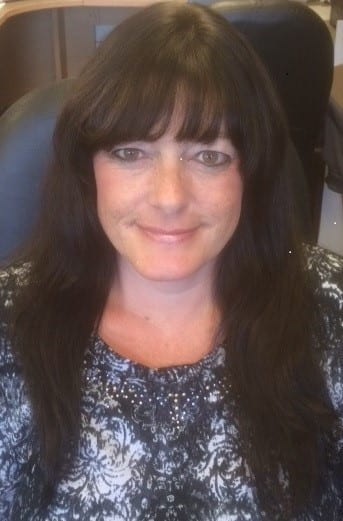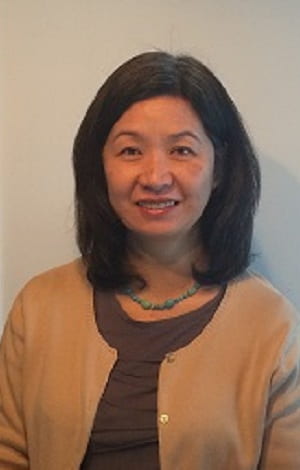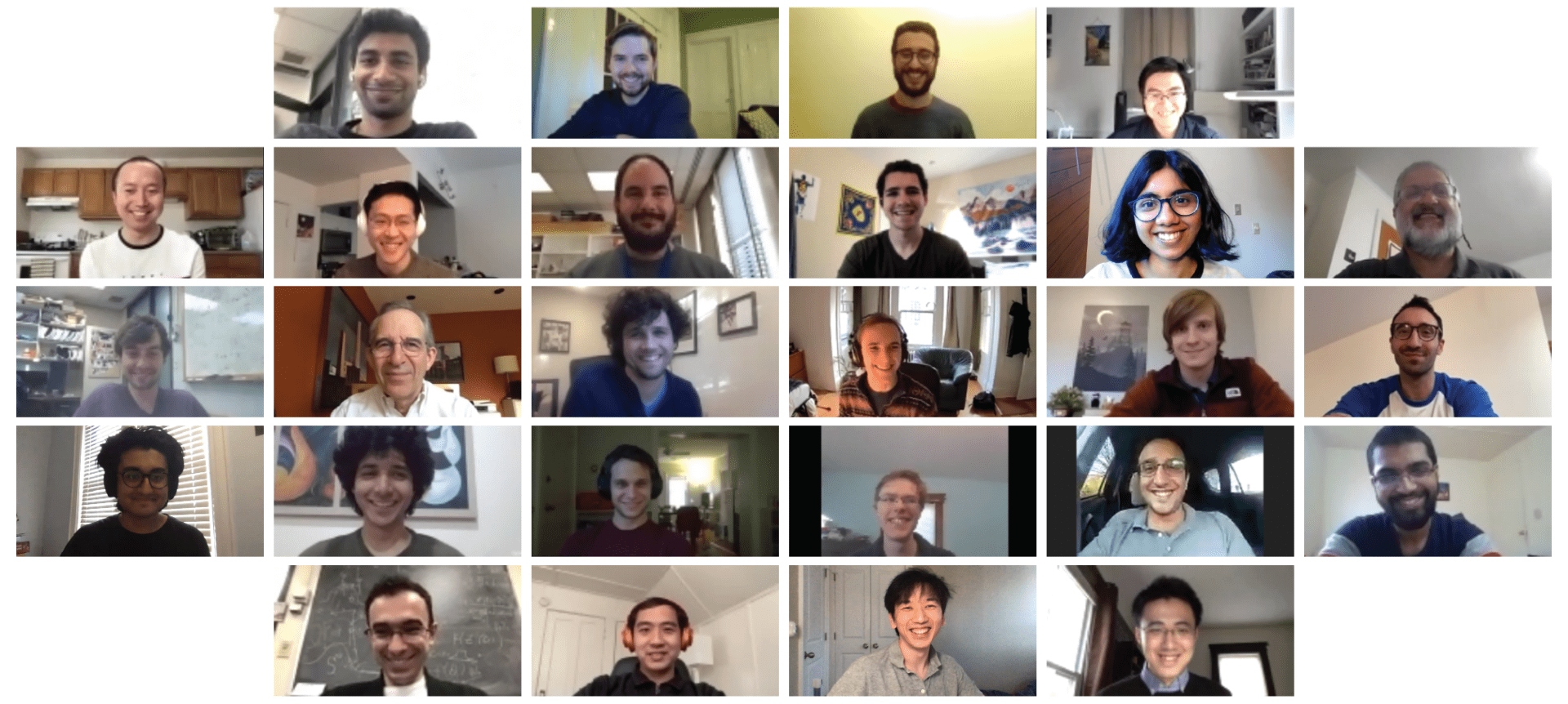Principal Investigator
Permanent Staff
Luigi Frunzio, senior research scientist
Giselle Maillet, administrative associate
Theresa Evangeliste, administrative assistant
Nuch Graves, program coordinator
Other Applied Physics Staff
Maria Rao, administrative assistant
Micheal Rooks, YINQE director of facilties
Yong Sun, cleanroom director
Visiting Scientists
Postdocs
Graduate Students
Alumni
Baleegh Abdo (postdoc)
Nicolas Bergeal (postdoc)
Etienne Boaknin (postdoc)
Markus Brink (postdoc)
Philippe Campagne-Ibarcq (postdoc)
Simon Fissette (undergrad)
Alvin Gao (undergrad)
Kurtis Geerlings (student)
Alexander Grimm (postdoc)
Michael Hatridge (postdoc)
Benjamin Huard (visiting scientist)
Philippe Hyafil (postdoc)
Archana Kamal (student)
Angela Kou (postdoc)
Gijs de Lange (postdoc)
Zaki Leghtas (postdoc)
Andrew Lingenfelter (undergrad)
Yehan Liu (student)
Vladimir Manucharyan (student)
Adam Marblestone (undergrad)
Nick Masluk (student)
Zlatko Minev (student)
Shantanu Mundhada (student)
Anirudh Narla (student)
Chris Pang (undergrad)
Frederic Pierre (postdoc)
Ioan Pop (postdoc)
Chad Rigetti (student)
Flavius Schackert (student)
Shyam Shankar (senior research scientist)
Kyle Serniak (student)
Irfan Siddiqi (postdoc)
Katrina Sliwa (student)
Clarke Smith (student)
Steven Touzard (student)
Rajamani Vijayaraghavan (student)
Uri Vool (student)
Chris Wilson (postdoc)
Evan Zalys-Geller (student)
William Zeng (undergrad)
 Michel H. Devoret
Michel H. Devoret
phone : 203-432-4273
Michel Devoret graduated from Ecole Nationale Superieure des Telecommunications in Paris in 1975 and started graduate work in molecular quantum physics at the University of Orsay. He then joined Professor Anatole Abragam’s laboratory in CEA-Saclay to work on NMR in solid hydrogen, and received his PhD from Paris University in 1982. He spent two post-doctoral years working on macroscopic quantum tunneling with John Clarke’s laboratory at the University of California, Berkeley. He pursued this research on quantum mechanical electronics upon his return to Saclay, starting his own research group with Daniel Esteve and Cristian Urbina. The main achievements of the “quantronics group” were in this period the measurement of the traversal time of tunneling, the invention of the single electron pump (now the basis of a new standard of capacitance), the first measurement of the effect of atomic valence on the conductance of a single atom, and the first observation of the Ramsey fringes of a superconducting artificial atom (quantronium). He became director of research at the Commissariat a l’Energie Atomique (CEA) at Saclay. In 2007, Michel has been appointed to the College de France, where he taught until 2012. He is a member of the American Academy of Arts and Sciences (2003) and a member of the French Academy of Sciences (2008). Michel has received the Ampere Prize of the French Academy of Science (together with Daniel Esteve, 1991), the Descartes-Huygens Prize of the Royal Academy of Science of the Netherlands (1996) and the Europhysics-Agilent Prize of the European Physical Society (together with Daniel Esteve, Hans Mooij and Yasunobu Nakamura, 2004). He is also a recipient of the John Stewart Bell Prize, which he received jointly with Rob Schoelkopf in 2013. In 2014, he has been awarded, together with John Martinis and Rob Schoelkopf, the Fritz London Memorial Prize. He received the Olli Lounaasma Prize in 2016.
Currently the F. W. Beinecke Professor of Applied Physics at Yale University — which he joined in 2002 — he focuses his research on experimental solid state physics with emphasis on quantum mechanical electronics (a.k.a. “quantronics”) for quantum information processing. In this new type of electronics, electrical collective degrees of freedom like currents and voltages behave quantum mechanically. Such mesoscopic phenomena are particularly important in quantum circuits based on Josephson junctions, which is his main research goal. He currently focuses on the new phenomena of fault-tolerant quantum operations and remote entanglement.
 Luigi Frunzio
Luigi Frunzio
phone : 203-432-4268
Luigi received his Masters in Physics at Federico II University in Naples, Italy, earning 110/110 Cum Laude. His thesis studied the effects of the intrinsic fluctuations in current biased Josephson tunnel junctions, and his preliminary work took place at the Superconductivity Department of the Instituto di Cibernetica of the CNR under the supervision of Professors Arturo Tagliacozzo and Roberto Cristiano. He also has a PhD from Orsay University. Luigi is currently a Senior Research Scientist at the Department of Applied Physics at Yale University. He works jointly with Prof. Devoret and Prof. Schoelkopf on experiments involving superconducting qubits. His curriculum vitae is available here
 Giselle Maillet Administrative Associate
Giselle Maillet Administrative Associate
Yale University, Applied Physics
15 Prospect Street / PO Box 208284
Becton Center 401
New Haven, CT 06520-8284
phone : 203-432-9654
 Theresa Evangeliste Administrative Assistant
Theresa Evangeliste Administrative Assistant
Yale University, Applied Physics
15 Prospect Street / PO Box 208284
Becton Center 401
New Haven, CT 06520-8284
phone : 203-432-2210
 Nuch Graves Program Coordinator/Financial Analyst
Nuch Graves Program Coordinator/Financial Analyst
Yale University, Applied Physics
15 Prospect Street / PO Box 208284
Becton Center 401
New Haven, CT 06520-8284
phone : 203-432-9610
 Maria Rao Administrative Assistant
Maria Rao Administrative Assistant
Yale University, Applied Physics
15 Prospect Street / PO Box 208284
Becton Center 401
New Haven, CT 06520-8284
phone : 203-432-4273
Maria lives in Branford, CT and has worked at Yale since 2004. She comes from Bayer Pharmaceutical Corp. with solid corporate experience. She has a teaching degree in foreign languages (Italian, French, and Spanish) from Southern Connecticut State University. She is our awesome administrative assistant. Young, energetic, and dynamic, she gets us all the tools and research equipment we want and takes care of all the paperwork involved – with a smile that’s always appreciated.
 Rodrigo Cortiñas
Rodrigo Cortiñas
Rodrigo was born and raised in Lomas de Zamora, a suburb of the Argentine capital. He studied Physics at the University of Buenos Aires, where his final undergrad project was on single optical photon quantum optics in the LOFT lab (Claudio Iemmi). He then moved to Paris, France to work in the cavity QED team of the LKB lab (Serge Haroche, Jean-Michel Raimond, and Michel Brune) on the development of Rydberg atoms technology for quantum simulation. They were the first team to laser trap circular Rydberg atoms (and for >10ms!), an achievement for which Rodrigo was awarded a PhD in atomic physics from the ENS (PSL). He then moved to Yale and joined Qlab to work on quantum error correction in circuit QED. Rodrigo is interested in the fundamental aspects of quantum mechanics and how to harvest them.
 Valla Fatemi
Valla Fatemi
Valla was born in Atlanta, GA. After studying applied physics at Columbia University, he completed a PhD in physics at the Massachusetts Institute of Technology. His thesis work was on the study of atomically layered topological insulators like monolayer tungsten ditelluride, and he also worked on van der Waals heterostructures like twisted bilayer graphene. He joined Qlab in the summer of 2018 to work on microwave spectroscopy and manipulation of Andreev bound states as well as experiments to understand quasiparticle dynamics in transmon qubits.
 Gangqiang Liu
Gangqiang Liu
Gangqiang was born and grew up in the beautiful countryside of Chengdu, China. In 2008, he received his BA in physics from Wuhan University in Wuhan, China. In 2015, he received his Ph.D in physics for studying Bose-Einstein condensation of quasi-particles in semiconductor microcavities under the supervision of Prof. David Snoke at the University of Pittsburgh. From 2015 to 2018, he worked as a postdoc in Prof. Michael Hatridge’s lab at Pittsburgh, where he studied Josephson parametric amplifiers and qubit readout with two-mode squeezed light. He joined Qlab in December of 2018 to work on directional parametric amplifiers.
 Ioannis Tsioutsios
Ioannis Tsioutsios
Ioannis Tsioutsios was born and grew up in Athens, Greece. He studied applied physics and mathematics at the National Technical University of Athens (NTUA), Greece, and electrical and electronics engineering at Ecole Polytechnique Fédérale de Lausanne (EPFL), Switzerland. He completed his Ph.D in physics in the group of Prof. Adrian Bachtold at the Institute of Photonic Sciences (ICFO) in Barcelona, Spain, where he investigated the properties of nanomechanical resonators based on graphene and carbon nanotubes. He joined Qulab as a postdoctoral associate in August of 2017 and he is currently working on improving the energy relaxation properties of superconducting qubits using novel nanofabrication technologies.
 Nick Frattini
Nick Frattini
Nick grew up in Los Altos, California. He graduated in 2015 from UC Berkeley with a BS in Engineering Physics and in Electrical Engineering and Computer Science. While there, he worked in Irfan Siddiqi’s Quantum Nanonelectronics Laboratory on microwave superconducting circuits. Since joining Qulab in the summer of 2015, he has been investigating novel quantum-limited parametric amplifiers.
 Wei Dai
Wei Dai
Wei was born in Shanghai, China. He received his undergraduate degree in physics from Tsinghua University in Beijing. At Tsinghua, he worked with Luyan Sun on superconducting microwave cavity design and Purcell filtering of cQED systems. During the summer of 2017, he worked on in-fridge infrared shielding during an internship with Adrian Lupascu at University of Waterloo. Wei joined Qulab in the fall of 2018. His current study focuses on quantum-limited parametric amplifiers based on SNAILs.
 Spencer Diamond
Spencer Diamond
Spencer was born in Amherst, Massachusetts. In 2014, he received his BA in Physics from Dartmouth College. He taught high school Physics for three years before beginning his PhD studies and joining QuLab in the fall of 2017. He currently works on experiments probing quasiparticle dynamics in transmon qubits.
 Alec Eickbusch
Alec Eickbusch
Alec grew up in Austin, Texas. He attended the University of Texas at Austin where he received B.S. degrees in Electrical Engineering and Physics. While at UT, Alec worked in the Raizen Lab studying graphene oxide. In summer 2017 Alec joined Qulab, and he is currently working on quantum error correction for superconducting cavities.
 Max Hays
Max Hays
Max was born in Asheville, North Carolina. He received his BS in Physics from the University of North Carolina at Chapel Hill, and joined QuLab in the fall of 2014. His current works focuses on using circuit QED to probe mesoscopic superconductors. This includes the detection and manipulation of Andreev bound states in semiconducting nanowire Josephson junctions, and the investigation of quasiparticle dynamics in transmon qubits.
 Akshay Koottandavida
Akshay Koottandavida
Akshay was born in Kerala, India. He received his Bachelors and Masters in Physics from UM DAE- CEBS. He worked on nonreciprocal optomechanical devices using superconducting circuits for his masters thesis under Tobias Kippenberg at EPFL. He also worked on topological phenomena in open quantum chains under Franco Nori at RIKEN, Tokyo and before that he interned at Wolfram Research. Akshay joined QLab in the fall of 2018. His current work focuses on quantum error correction using pair-cats.
 Vladimir Sivak
Vladimir Sivak
Vladimir was born in western Ukraine and finished Ukrainian Physics and Mathematic Lyceum in Kiev receiving a silver medal at International Physics Olympiad in 2012. He studied theoretical physics in Russia at Moscow Institute of Physics and Technology and graduated in 2016. Vladimir joined Qulab in the summer of 2017 and currently works on SNAIL parametric amplifier.
 Jaya Venkatraman
Jaya Venkatraman
Jaya grew up in Bangalore, India. In 2016, she received her BS degree in Physics from Indian Institute of Technology, Kanpur. While there, she worked with Anand Kumar Jha on characterizing spatial coherence in spontaneous parametric down conversion. During an internship with Alexandre Blais at Sherbrooke in 2015, she worked on using optimal control theory for fast resonator reset. She joined Qulab in the fall of 2016 and is currently working on theory and experiments to investigate dynamical instabilities that occur in driven superconducting circuits.
 Zhixin Wang
Zhixin Wang
Zhixin was born and raised in China. He received his Bachelor degree in Microelectronics from Tsinghua University at Beijing in 2015. While at Tsinghua, he studied quantum optics and quantum information theory, and later worked on growth and characterization of topological insulators. In Fall 2013, he was an UCEAP exchange student at University of California, Santa Barbra, pursued non-degree study in Physics, and investigated quantum transport in superconductor-semiconductor mesoscopic heterostructures. In the summer of 2014, he was a visiting student in research at the Department of Applied Physics, Yale University, working on theoretical optics, and attempting the broadband generalization of coherent perfect absorbers (CPA). Since joining Qlab in the fall of 2015, he has been investigating superconductor-semiconductor nanowire hybrid quantum circuits and cold microwave cavity attenuators.
 Xu Xiao
Xu Xiao
Xu grew up in Beijing, China. He received his B.A. degree in physics from the University of Chicago in 2014. While at UChicago, he worked with David Schuster and David Awschalom on NV-centers. He joined Qulab in the summer of 2017. His current work involves investigating the instabilities of driven transmons by modifying the circuit’s phase potential with an inductive shunt.

